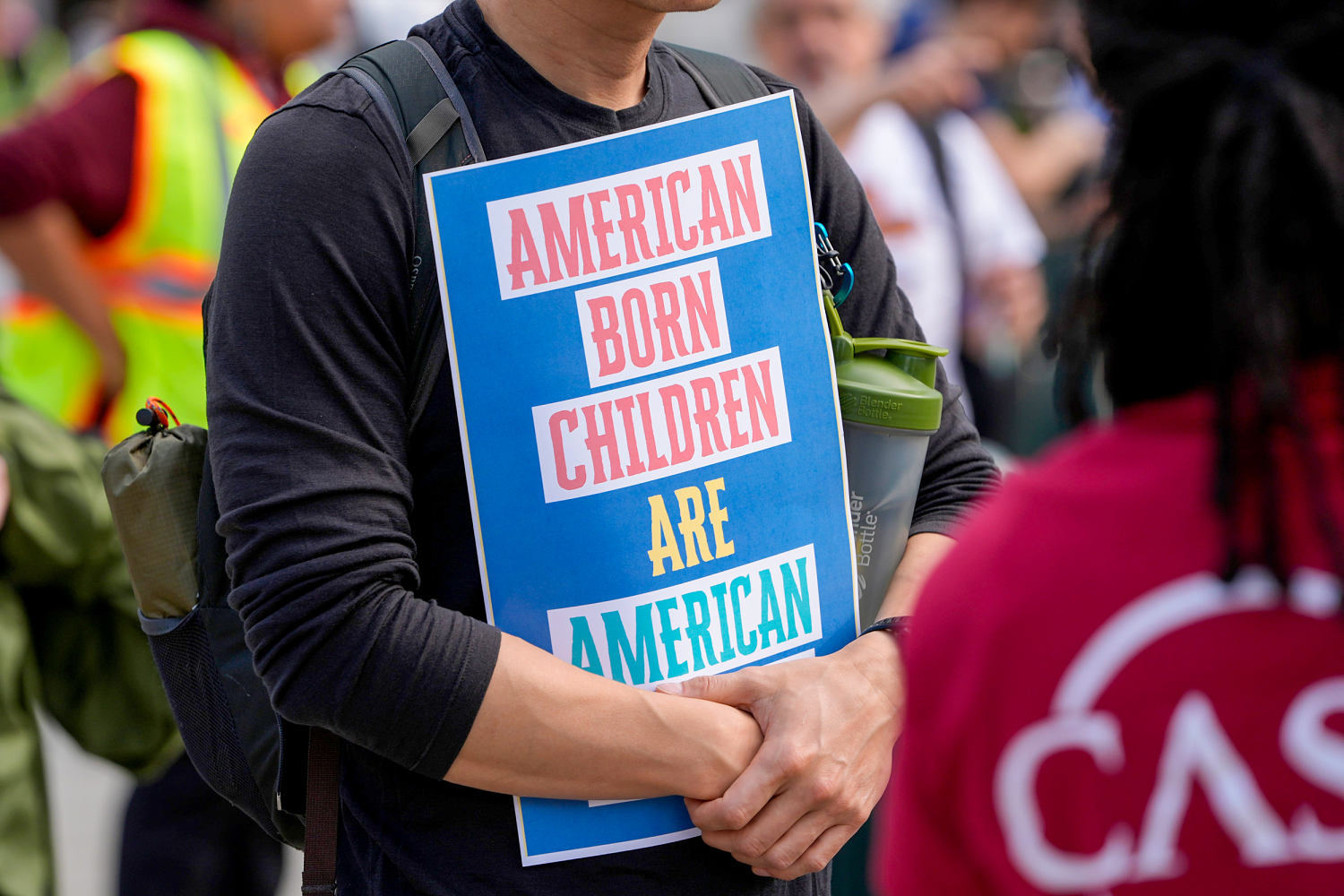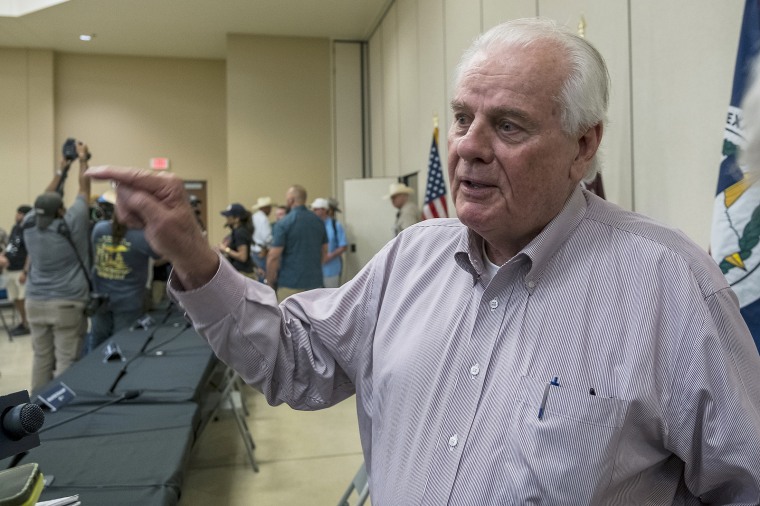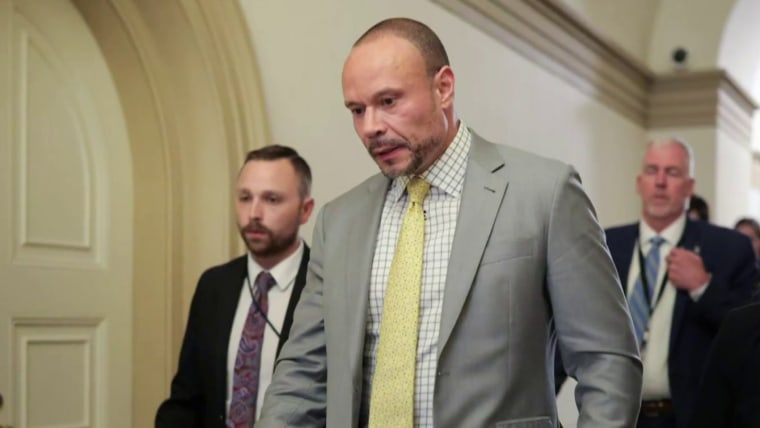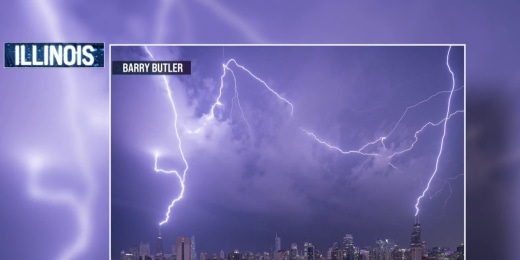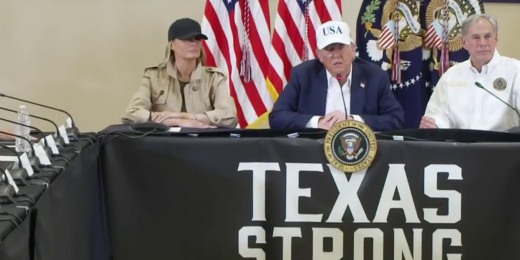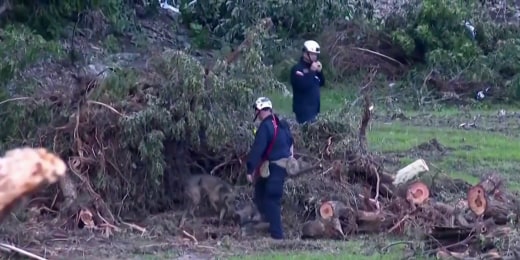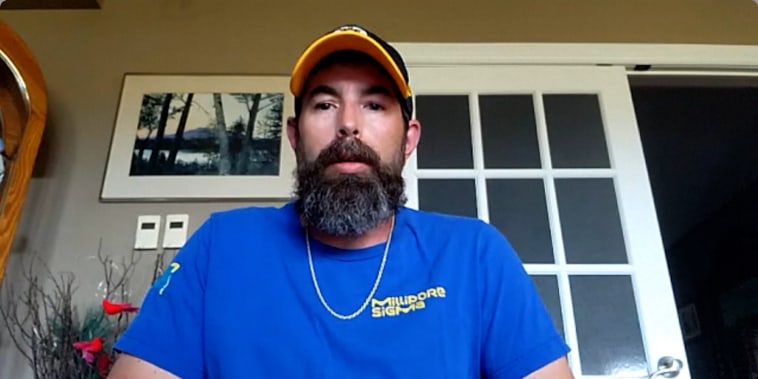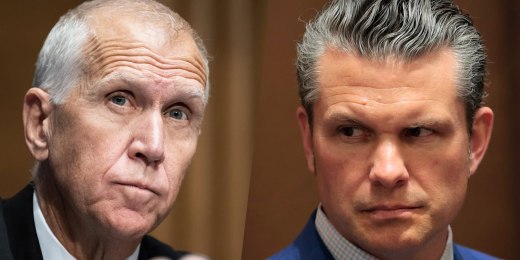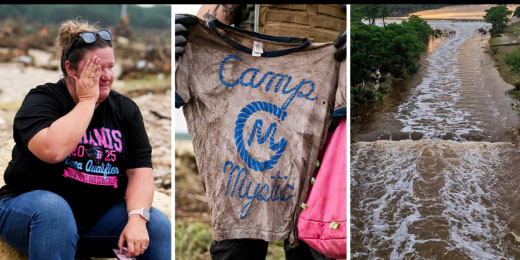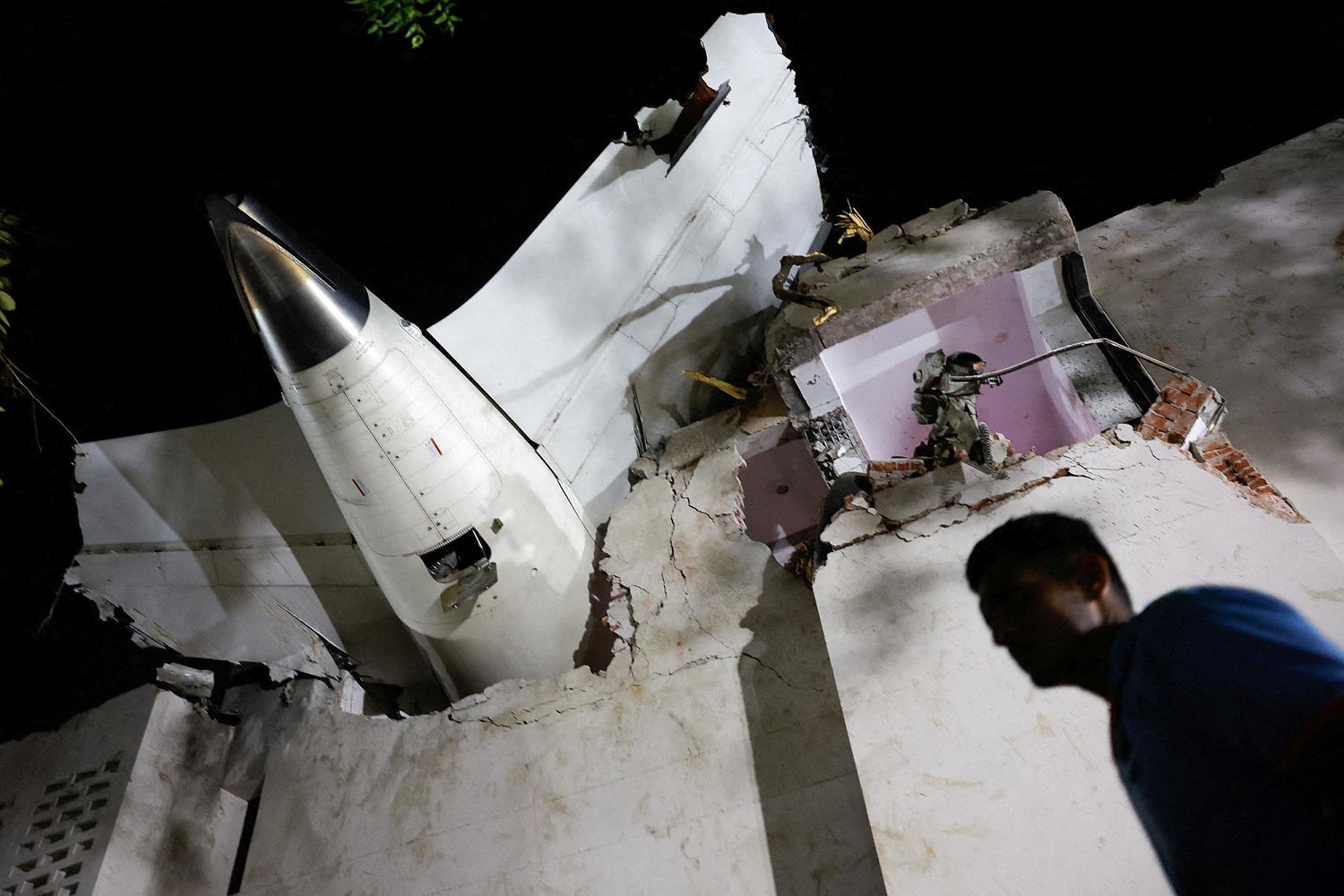WALKER, La. — Few states stand to lose as much from the megabill that President Donald Trump signed into law as Louisiana.
With more poverty and disease than most of the country, Louisiana relies heavily on Medicaid benefits going to people who lack the means to cover a doctor’s visit on their own.
That fragile lifeline is now in jeopardy.
The “Big Beautiful Bill” that Trump muscled through Congress chops Medicaid spending by nearly $1 trillion over the next decade.
Out of sheer self-interest, Louisiana might seem a state that would fight to preserve Medicaid. About 35% of Louisianans under the age of 65 were covered by Medicaid in 2023, the most recent year data was available. That figure is the second highest among the 50 states, according to KFF, a nonpartisan health policy organization.
Yet the state also voted heavily for Trump in the 2024 election and, polling shows, appreciates the job he’s doing as president.
Louisiana loves Trump but needs Medicaid. How does a deep-red state reconcile the two?
Interviews with a dozen Louisianans, most of whom supported Trump, suggest that many in the state have absorbed the arguments that Trump and his congressional allies used to sell the bill. A few warning signs for Trump emerged. Some of his voters aren’t thrilled with what they describe as his bombast or are skeptical the measure will live up to its grandiose title.
“He’s a jacka– — he’s the best jacka– we’ve got,” said Jason Kahl, 56, wearing a shirt decorated like the American flag during a July 4 celebration in Mandeville, on the north shore of Lake Pontchartrain.
“A lot of times he says things that we’re thinking, but don’t want to say out loud,” Lydia DeRouen, 66, a customer at Cat’s Coffee and Creamery in DeRidder, Louisiana, said on a recent morning.
The state’s embrace of the new law points to a dynamic prevalent in the Trump era: If he says he wants something, that’s good enough for many of his voters.
“I just support President Trump. Most everything he’s doing, I’m in on it,” said Sue Armand, a 65-year-old retiree who attended a recent festival at a park in Walker, a city outside the state capital of Baton Rouge.
Nationwide, the act will reduce the number of people receiving Medicaid by nearly 12 million over the next 10 years, the largest cutback since President Lyndon Johnson created the program 60 years ago as part of his “Great Society” agenda.
Among the bill’s provisions are requirements that those between 19 and 64 years old work a minimum of 20 hours a week unless they are caring for a child or are disabled. The bill also limits states’ ability to raise certain taxes to help pay for their share of Medicaid programs, which could cause cuts across the board.
Real-world consequences could prove dramatic.
“A lot of people who will be impacted the most negatively are Trump voters,” said Silas Lee, a New Orleans-based pollster.
“We see that in different parts of the nation, where many other communities that supported Trump will experience severe cuts in services that are critical to their survival,” Lee added.
Alyssa Custard of New Orleans worries what the wider cuts to Medicaid funding will mean for her family. Her 88-year-old mother suffers from dementia and goes to an adult day care center in New Orleans.
Custard’s mother, who worked as a preschool teacher most of her life, has little retirement savings and not enough to pay for long-term, private in-home care.
Custard and her siblings have been providing care themselves and have been able to keep working because of the adult day care program. But that funding could now be in jeopardy with the cuts to Medicaid.
“My mom worked taking care of other people’s kids in the educational system for 50 years,” Custard said. “She paid into all these things, and now, when it’s time for her to reap the benefits of what she paid into for a long time, you have this bill that is taking this away from her and all the other people.”
A talking point that proponents used to pass the bill was that Medicaid is rife with abuse and that the changes would expel undeserving recipients from the rolls.

House Speaker Mike Johnson, a Trump loyalist who helped steer the bill through Congress, represents a swath of western Louisiana where nearly 25% of adults under 65 rely on Medicaid.
Johnson has suggested that beneficiaries include able-bodied people who won’t work and are thus “defrauding the system.”
“There’s a moral component to what we’re doing. And when you make young men work, it’s good for them, it’s good for their dignity, it’s good for their self-worth, and it’s good for the community that they live in,” he said in May.
That justification rings true to many in his home state, who believe that federal benefits more broadly are going to the wrong people.
Jason Wallace, 37, an accountant working a “Nibbles and Noshes” stand at the Walker festival, said that when it comes to Medicaid, “Some of the stuff I’ve heard about [the new law is that it is] trying to keep illegals from taking advantage of our benefits that they don’t pay into at all.”
A common belief is that taxpaying citizens are getting shortchanged, giving rise to feelings of umbrage that Trump has managed to harness.
The new law also makes cuts to a food assistance program known as SNAP. Along with Medicaid, Congress pared back SNAP benefits to create savings that would help offset the cost of extending the tax cuts Trump signed in his first term.
“You go stand in line and the lady in front of me has her nails done, her hair done and she’s got food stamps. I work too hard for what I get,” said Charles Gennaro, 78, who was among those on the Lake Pontchartrain shoreline in Mandeville on July 4 as a bluegrass band played on an outdoor stage.
“People come into this country for no reason and get things that they shouldn’t get,” he added.
Nancy Adams, 50, who also turned out for the celebration in Mandeville, said: “I’m a single mom. I raised my daughter, struggling every day. And yet these illegals come in and they can get everything. I’m paying for them. But I’m struggling to raise my daughter and I don’t qualify for food stamps or anything.”
Independent analyses of the Medicaid program show that most recipients are already employed. KFF released a report in May showing that in 2023, nearly two-thirds of those under 65 receiving Medicaid and not other forms of federal aid were working full or part time. Those who lacked jobs cited reasons that included school attendance, care-giving duties, illness, disability or other causes.
A separate KFF report that month showed that 95% of Medicaid payments last year were made properly, while the vast majority of improper payments sprang from paperwork errors or administrative actions.
Robin Rudowitz, director of KFF’s program on Medicaid and the uninsured, cited government estimates that 10 million people could lose health insurance coverage under the new law.
“These are not people who were fraudulently on the program,” she said.
Heading toward DeRidder in the western part of the state, a driver sees billboards advertising legal services for those who’ve endured car wrecks or injury or are in bankruptcy. A city of about 10,000, DeRidder is part of Johnson’s congressional district.
A Walmart in the city was doing brisk business last Sunday, with people stocking up on groceries and supplies. Some customers of varying ages weren’t ambulatory and used motorized carts. Outside the store, Don Heston, 41, who works in the oil and gas industry, described Medicaid as a “great idea,” but one that “needs serious rework.”
“Lots of people who are on it shouldn’t be. You have people that have paid into it their entire life. They’re physically messed up. They can’t work any more and they can’t get it. But you have people who have never worked a job with any meaning and they’re getting it that quick” he said, snapping his fingers, “because they know the ins and outs of the system.”
Weeding out those who are abusing the program might be a worthy goal, but Medicaid advocates worry that cuts won’t be made with such precision. Those who truly need the help may get caught up in the purge, according to Keith Liederman, CEO of Clover, the organization that serves Alyssa Custard’s mother.
“In the state of Louisiana, it’s many of the same staunch supporters of our president who are going to suffer as a result of this bill, and especially in rural areas of our state, of which there are many, many struggling individuals and families, many of whom are supporters of the president,” Liederman said.
Clover is bracing for severe cuts that could cause it to shutter its adult day care service entirely, Liederman added.
“It’s confounding to me how so many people throughout our country, when they think about people who are economically poor and struggling, think that there’s something wrong with them, that they’re not trying hard enough, that they’re not working hard enough, that they’re shirkers trying to abuse the system,” he said.
“That couldn’t be further from the truth based on my direct experience in working with thousands of people who are in these positions. I’ve never seen people who work harder and who are trying harder to get out of poverty than the people that we serve and so many others in our community.”
If health centers that rely on Medicaid patients are forced to close, it will affect patients with other forms of health insurance as well, who also rely on those providers in their community.
At the David Raines Community Health Centers in northwest Louisiana, which includes several clinics in Johnson’s district, officials are preparing to make cuts to their services as they anticipate a significant drop-off in the number of their patients with health insurance as a result of changes in the bill, David Raines CEO Willie White said.
“It really is going to be devastating, to say the least, for the patients that we serve and for other community health centers as a whole, as to how we’re going to be able to continue to provide the level of access that we currently provide,” White said. “I’m just not sure how it’s going to work.”
Clocking in at nearly 900 pages, the act brims with policy changes that will take time for voters across the country to digest. Trump directed Republican lawmakers to pass it by July 4, and they complied. So far, the bulk of this pro-Trump state seems pleased that they did. But some who voted for Trump are waiting and watching. They know the new law is big; they’re just not sure yet whether it’s beautiful.
Jennifer Bonano, 52, is a retail clerk who came to the festival in Walker. Sitting in her folding chair, she said she voted for Trump but isn’t persuaded yet that the new law is all that was advertised.
“You don’t want the people that need the Medicaid and that need the food assistance to be suffering,” she said.
As for the vote she cast back in November, she said: “I’m still wondering.”
“You don’t know just yet what the outcome is going to be, because with Trump he doesn’t know when to hush,” Bonano said. “You don’t know if it’s going to be good outcome or a bad outcome, anything he does.”






